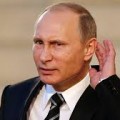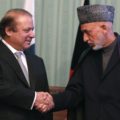The United Nations envoy for Afghanistan, Tadamichi Yamamoto, has pointed out both some progress and the severe challenges in that nation.
While the Government has committed to holding parliamentary elections which should be “fair, inclusive and transparent by the Afghan people,” the Taliban retains extensive military capabilities. It’s extreme views on women also put a damper on the fairness of any forthcoming election.
“The deteriorating security situation remains of great concern,” notes Yamamoto. He urged the Taliban to enter peace talks without preconditions and warning against attacks by foreign fighters including ISIS.
Last year, the UN Assistance Mission in Afghanistan (UNAMA) recorded the worst number of civilian casualties since record-keeping began nearly a decade ago. Deteriorating security also led to the highest-ever level of internal displacement in 2016. More than 650,000 Afghans were displaced. Returns from Pakistan exceeded 620,000 people. Displacements and returns for 2017 are likely to remain at these levels.
Yamamoto notes that due in part to the worsening security situation over the past two years, service delivery has become increasingly difficult. “We have witnessed some downward trends in key indicators, such as access to health clinics and education facilities,” he said.
As reported by the New York Analysis of Policy and Government in February, Russia has reached out to the Taliban. A senior official of that terrorist group told Reuters in early December that Russia’s relationship with the Taliban began in 2007, as Moscow shared the Taliban’s objective of forcing all U.S. troops to swiftly withdraw from Afghanistan.
“The official end of the U.S. war in Afghanistan in 2014 did not cause Russia to distance itself from the Taliban…Critics of Russian foreign policy argue that Putin’s outreach to the Taliban is a cynical ploy to undermine the legitimacy of President Ashraf Ghani’s U.S.-backed government. Some Afghan policymakers and General John Nicholson, a leading U.S. military commander in Afghanistan, have publicly given credibility to this contention…Citing a high-level Taliban official The Daily Beast reported in October 2015 that Moscow also encouraged Tajik intelligence operatives to facilitate the shipment of Russian arms to the Taliban.”
A Foreign Affairs analysis points out that “Trump inherits a more challenging situation in Afghanistan than his predecessor did. …Several other countries, including Iran and Russia, have also stepped up communication with, and provided limited material support to, the Taliban…Afghanistan’s national unity government remains weak and hamstrung by corruption…
Former U.S. Director of National Intelligence James Clapper, gave his views on the Taliban’s strength in a statement to the Senate Armed Services Committee in 2015
“The Afghan National Security Forces (ANSF)…will require continued international security sector support and funding to stave off an increasingly aggressive Taliban insurgency…Without international funding, the ANSF will probably not remain a cohesive or viable force. The Taliban will probably remain largely cohesive…and sustain its countrywide campaign to take territory in outlying areas and steadily reassert influence over significant portions of the Pashtun countryside, positioning itself for greater territorial gains …The Taliban has publicly touted the end of the mission of the International Security and Assistance Force (ISAF) and coalition drawdown as a sign of its inevitable victory, reinforcing its commitment to returning to power.”
The fight against the Taliban is of exceptional importance, since it may gain access to Pakistan’s nuclear arsenal.
Writing in the National Interest Akhilesh Pillalamarri describes the problem: “Although Pakistan argues that its nuclear weapons are well-guarded, many experts are not so sure, pointing out that the Taliban and other militants have frequently struck at supposedly secure military bases with impunity. More worrisome, though, is Pakistan’s history of proliferation, which increases the chance that one day some element or the other in the Pakistani military will provide nuclear materials to an even more dangerous third party…”
Frank Vernuccio serves as editor-in-chief of the New York Analysis of Policy and Government at usagovpolicy.com.
















Follow Us